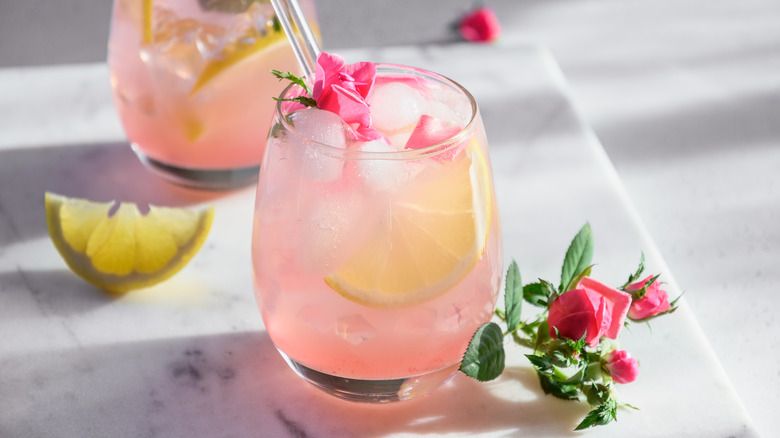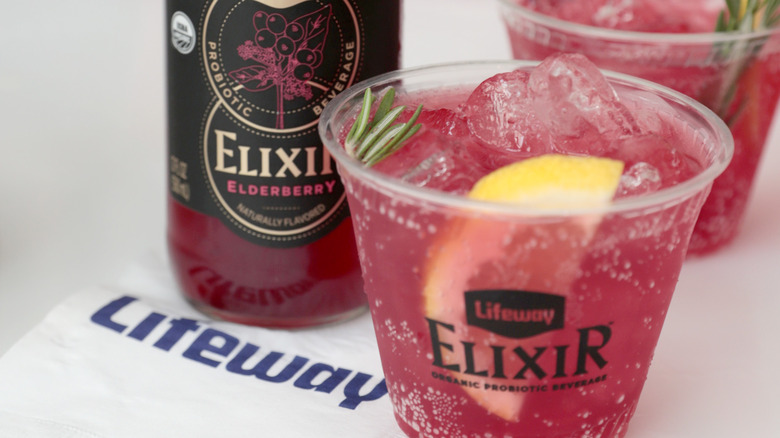Why Botanicals Are Key To The Most Flavorful Non-Alcoholic Spirits
Non-alcoholic drinks — sometimes called mocktails, fauxtails, virgin cocktails, pacers, or spiritfrees (a term coined by Chicago mixologist Julia Momose) — are having a big moment. Appealing to those who are abstaining from booze for any reason, whether they are sober, pregnant, or simply the designated driver for the night, zero-proof and low-proof beverages are popping up in bars, restaurants, and home kitchens around the world.
When you think of a non-alcoholic drink, perhaps a glass of seltzer water or club soda with a splash of fruit juice comes to mind. Maybe you envision a plain glass of fizzy cola, a refreshing Arnold Palmer, or a sweet, innocent, cherry-infused Shirley Temple. The truth is, there are tons of delicious, unique recipes for non-alcoholic cocktails to choose from, which call for tasty, anything-but-boring ingredients. Take this Turmeric and Ginger Juice Mocktail or this Red and Orange Spicy Mocktail, for example. Some of those ingredients that have been gaining traction are botanicals. Don't believe us? Here's a Watermelon-Chamomile Mocktail to prove it. So, what, exactly, are botanicals — and do they really make a difference in a drink's flavor?
Botanicals add a burst of natural flavor
First, let's break down what a botanical actually is. According to WebMD, botanicals are the naturally derived parts of plants, including seeds, flowers, leaves, and roots, that offer health benefits or nutritional value. Botanicals are common elements of countless products on the market like skincare, cosmetics, teas, supplements, essential oils, and of course, beverages. The Spruce Eats explains that, unlike classic distilled spirits, non-alcoholic "liquor" is typically made from carefully crafted blends of botanicals, which can generate various sensations of relaxation or vitality — without the inebriation or dreaded hangover.
Thankfully, the beverage industry is quickly catching onto this movement, as companies both new and established are creating batches en masse of wholesomely sweet, tart, zesty goodness that can be enjoyed by virtually anyone. SANS Junipre, for example, is a botanical spirit manufactured in a similar fashion to that of traditional gin but contains a medley of juniper, ginseng, basil, coriander, cardamom, orange peel, and chili pepper botanicals. Other popular non-alcoholic, botanical-based libation brands include Seedlip, Spiritless, Monday, Lyre's, and Curious Elixirs.

